

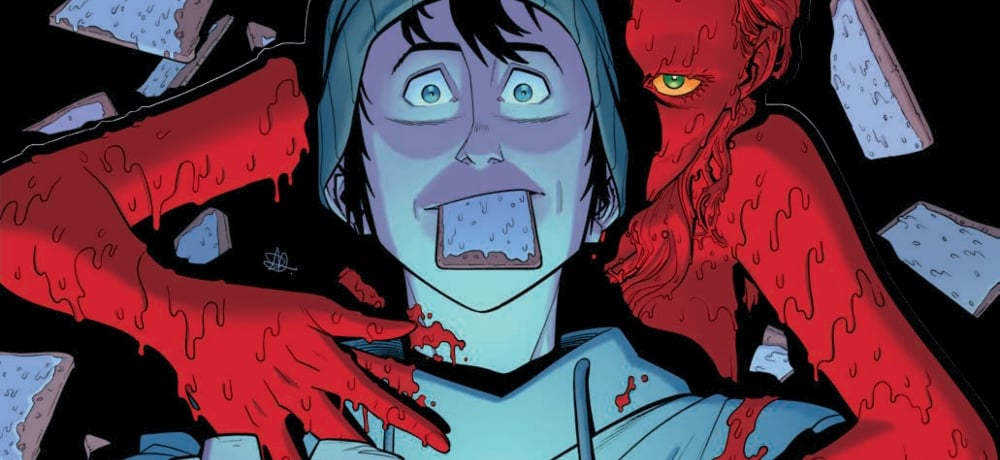
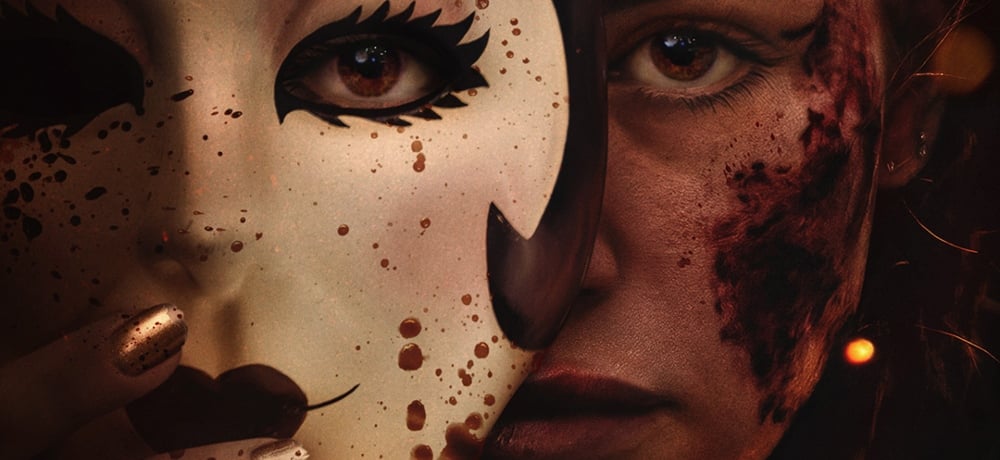
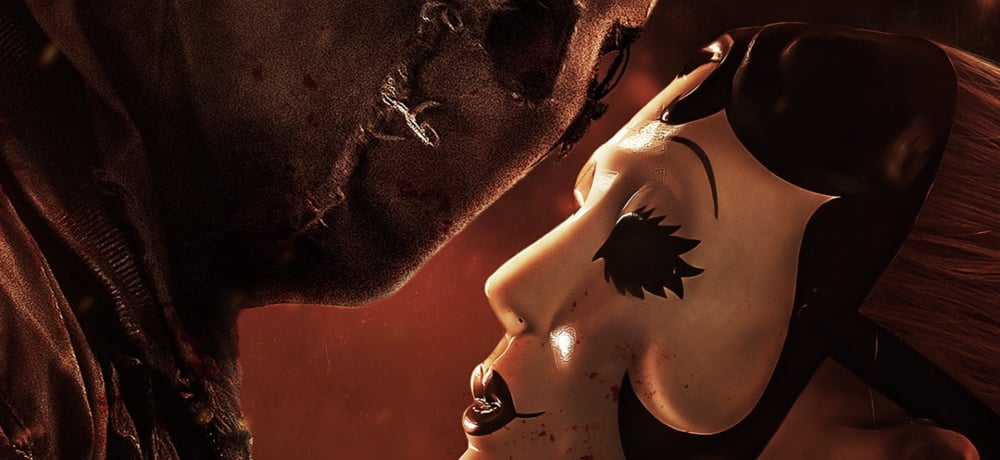

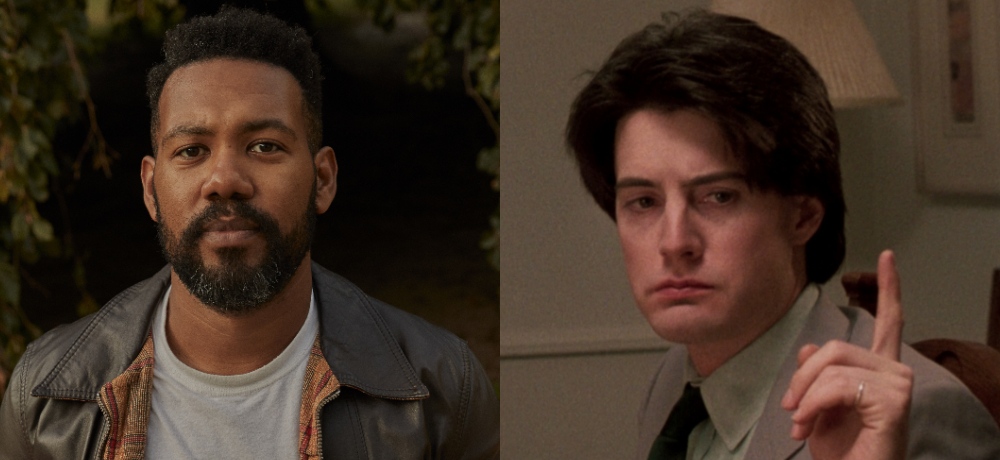
Welcome back to Let’s Scare Bryan to Death! Joining us this month is Tarik Davis, a writer and actor whose work stretches across media platforms, from film and television to online content and even stage productions. He’s currently featured on Peacock’s The Amber Ruffin Show, where his horror sensibilities can’t help but peek through from time to time. Horror fans should also check him out in the short film Page One, the Stakes is High essay series that he wrote to explore hate and fascism through the lens of vampire films, and his video "Your 21st Century Woke Horror Host: Addison Hadley."
Given Davis’ eclectic mix of horror and sci-fi inspirations, I was excited when he recommended Jack Sholder’s 1987 film, The Hidden. I’ve had The Hidden on my radar ever since I heard it described as a better version of Jason Goes to Hell, a movie I probably would have enjoyed a lot more as a standalone film rather than trying to tell me after eight movies that Jason Voorhees is actually a parasitic worm that inhabits new hosts after ritualistically shaving them. Anyway, it seemed like a no-brainer to watch The Hidden for a discussion with Davis, who credits it as one of those childhood movies where “anytime it's on, you stop what you were doing and you would watch.” (Spoiler Alert: we’ll be discussing major plot points).
While there are certainly similarities to JGTH, The Hidden is more akin to the sci-fi police procedurals that came out in the late ’80s such as Alien Nation or another favorite of Davis’, The Peacemaker. In The Hidden, we open with gruff Los Angeles detective Thomas Beck (Michael Nouri) leading the chase for Jack DeVries (Chris Mulkey), a man with no criminal past who suddenly went on a killing spree, culminating in a shootout with police that leaves DeVries near death.
While Beck is ready to call the case closed, he’s pulled back in by FBI agent Lloyd Gallagher (Kyle MacLachlan), who claims the real criminal is still at large. As it turns out, said criminal is an extraterrestrial insect that can pass from body to body, using various hosts to indulge in its destructive impulses until the body is used up and it finds another one. Beck realizes that not all is as it seems with Gallagher, either, as the duo reluctantly team up to catch this interstellar fugitive before it can wreak even more chaos.
For those who think this plot seems a little silly, Davis would likely agree. But he also notes that it’s thoughtfully written given the premise and that everyone involved takes it seriously.
For what it is, it’s very well done. Everyone is playing to the intelligence of the script, written by Jim Kouf [credited as Bob Hunt]. Everyone is playing it seriously, even though it's like... I think of the movie Last Action Hero where it's this heightened L.A. crime city, and all the action hero tropes. This film is serving that, it's serving that up in a tongue-in-cheek way, that perfect, gritty, ’80s West Coast urban way that it can. But when the sci-fi elements come into it, I can't help but to think they're doing a lot of serious heavy lifting that, at the time, most [films] would have played frivolously, if that makes sense.
The Hidden is also chock-full of appearances by genre mainstays, from the prerequisite New Line appearance by Lin Shaye to a blink-and-you’ll-miss-it spot from a young Danny Trejo. But what Davis appreciates most is in how, similar to other films through the late ’00s, Sholder casts character actors of the ’60s and ’70s to elevate otherwise throwaway scenes. Case in point: Clu Gulagar pops in and out for some brief but memorable scenes as the police chief.
It's a small role, but he had to wear his cowboy boots to remind you who he was. “I'm a cowboy, even though I’m a police chief.” But yeah, it's great. You've got Clu Gulager. [There’s Jim Luisi, who] was in the Rockford Files. He was a chief of police who hated Jim Rockford, played by James Gardner. It's just like, “Oh yeah.” As an actor myself it's always... I'm an actor, but I'm an audience member first... I feel like there is an aspect where you see an actor that you recognize from other work and who makes an impact that's like, “Oh well, this is in good hands. Like if it’s just this scene, the scene is in good hands.
Davis also appreciates that rather than dragging out the body swap reveal, we see the extraterrestrial infect a new host very early in the movie through a sequence that displays Sholder’s savviness in using his science fiction elements sparingly, but in ways that hit hard when they do appear.
But that spoiler doesn't spoil the story, because you become so invested in the honesty that everyone's playing, the level of honesty everyone's bringing to the story. And it's really an incredible feat how they did that, and I think something that goes unmentioned is that they don't rely heavily on the sci-fi special effects. But when it does happen, it's done very well. I think they used restraint to an amazing degree. When you do see that reveal in the beginning, it's like, “Oh my God, this is something truly alien.” Knowing that and then seeing the same parasitic creature swapping bodies, and enjoying loud music, enjoying food, enjoying sex—it's disturbing.
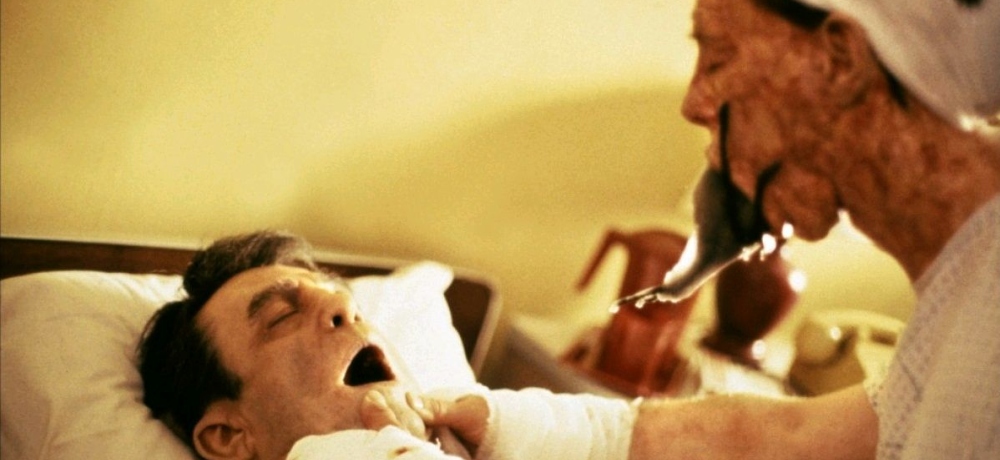
Indeed, the film revels in using the alien’s experiences in its human hosts as a vehicle to dive into ’80s excess, both in terms of story and the tone of the movie as exemplified in a scene where the alien decides that it wants a Ferrari.
I love that the villain is all id: “I want.” And it works. “I want that car.” By the way, the car dealership scene... chef’s kiss. They didn't have to do that! It could have literally just been a bad car salesman just having this transaction, but it's just like, “No, we're gonna get the douchiest dude buying this Ferrari. And by the way, they're gonna be doing cocaine in the back to celebrate for no reason!”
Through these scenes, The Hidden provides interesting (if likely unintentional) insight to the sensibilities of the day. Take, for instance, the opening chase scene that ends with a couple dozen cops opening fire on the unarmed bad guy without blinking an eye. Of particular interest for Davis, however, are the (again, likely unintentional) discussions about gender at play, both through the villain as well as through MacLachlan’s character, who, as we discover through the course of the movie, is also an alien named Alhague who’s been chasing the villain in something of an interstellar manhunt.
Thinking about the gender dynamics of this movie, in going back to the mystery of Kyle MacLachlan's character, there's a lot going on there. It’s uncertain and unspoken, and there's a scene where he's at Michael Nouri’s house and he sees his family. He's eating dinner and [MacLachlan’s character] has a connection with the daughter, and something's going on with the daughter.
Michael Nouri is constantly irritated, just constantly irritated. Now his wife goes to ask Kyle MacLachlan's character a question, and he raises a hand to shush her. My eyebrows raise and I was like, “Oh…” But then something else caught my attention, and I would love to watch this with DVD commentary. I'd be interested to hear Kyle MacLachlan on what he thought the backstory was. [His character] says something about his daughter and his partner getting murdered, but when he brings up his daughter, there's almost a question mark. It's almost like he added the gendered aspect of this child to fit in.
There are moments where, like Claudia Christian from Babylon 5 (a favorite of mine) when she is taken over and infected and is the host for this parasite, and then goes out and takes a John. And they're having sex in the car, and she's laughing. And her laugh is, again, doing a lot with very little. It's a, “Huh.” There's almost like a, “Oh, so that's what this is like.” And it's fascinating considering the gender dynamics of this, considering the backstory that isn't spoken about, considering the intelligence of these entities, and talking about other planets and inhabiting other beings and considering them filthy, and how this is a lot of fun being here. What's it like being human? It would only have taken another line: “What's it like being male? What's it like being gendered? Are we even gendered where we come from?” I thought that was interesting, fascinating subtext.
Since we’re seeing these narratives play out through the lens of 2020 sensibilities, we also discussed what an updated version of the story might look like today with someone deliberately investigating those themes that may have been incidental in the original. Davis leans more towards a continuation of the story rather than a straight remake (and one that ignores that subpar ’90s sequel that went straight to television). In particular, Davis would love to see a story that explores the ambiguity of the original’s ending, where Alhague imbues his life force into a dying Beck.
I've seen this movie a lot, and I watched it recently for our discussion. And that last scene hit in a way that's never hit me before. I always assumed that the detective, the Thomas Beck character, played by Michael Nouri, that it was him [Beck], fully him in the end. And [this time], I'm like, “No, that's not actually what they said.” It can be a lot of things going on at the end. And they kind of leave it for you to decide, and for me, this film laid such good world-building and did a great job of just not trying to do too much, but still telling a lot. To me, the stories that do that are worthy of a continuation, where all of these things happened and we're picking up. Or it's like a soft reboot, with a completely new story, new characters. But [the original] is a reference piece. This is something in the index that you can look up.
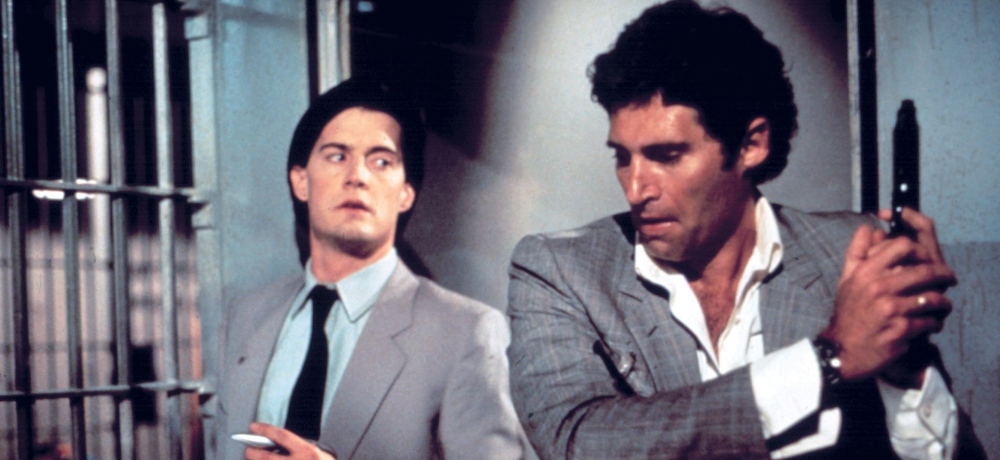
There are so many things you could do. Another thing that I picked up on, and maybe I’ll have to watch it again, I always considered watching this as a kid, as a teenager, that Kyle MacLachlan's character is a space cop. But he never really says he's a cop. I was looking for it, and he talked about his partner dying. The terminology [“cop”] is never used. Considering all of these things, and I love that idea, and that’s how I read it, too [during my most recent viewing], maybe Detective Beck is dead, there’s a shared consciousness thing going on. Or if it's completely Lloyd Gallagher, Kyle MacLachlan’s character then, and if he's a police chief, then I'm assuming he’s not a popular one, although very effective. Because this is an enlightened being who has a different idea about what police work is. They have weapons that are specific to your composition, and don't just randomly destroy anything.
By continuing Beck/Gallagher/Alhague’s story this way, it opens a continuation up to exploring this universe in some ways that may not have been possible in 1987. Plus, it’s an opportunity to dive deeper into a subplot that’s only hinted at in the original.
“There's something going on with [Beck’s] daughter, and there is a hesitation at the end before she takes her father's hand. And what is the continuation of that? Why did Kyle MacLachlan say she was special? What's going on with her? Is it something related to everything that's going on, or is it something completely different? Yeah, there's so many places you can go. You can deal with that, you can have the added layer of “guess what, it's happening again.” And if someone did have the budget, we don't have to just see everything on this existence, we can find out a little bit more, not a lot more, but a little bit more of like, what is this whole thing? In my brain, the story, what's been running through my brain ever since watching this movie in 1987, was what was happening on those other planets? What is this thing? What society does it come from? Are [Alhague and the bug creature] from the same species? Are these two different species? Because they inhabit bodies differently. One seems to be energy based, and the other seems really like some kind of just a bug.
While there are a lot of questions that could be explored in a continuation of the story, Davis is still perfectly content with how the original resolves. And he reminds us that, at its core, The Hidden is simply a fun time capsule of ’80s action and science fiction. He hammers this point home with one crucial piece of trivia.
My final pitch would be that [the character] who played the car salesman, James Luisi, he is credited as not just James Luisi, but James Luisi “as the sleazy, cocaine-sniffing Ferrari salesman.” Let that be the pitch. This film knew exactly what it was, knew what they were serving up. All you gotta do is sit and enjoy it. There aren't many things you can do that with today, but this is one of them.
[Photo Credit: Above photo of Tarik Davis by Alexandra Genova.]